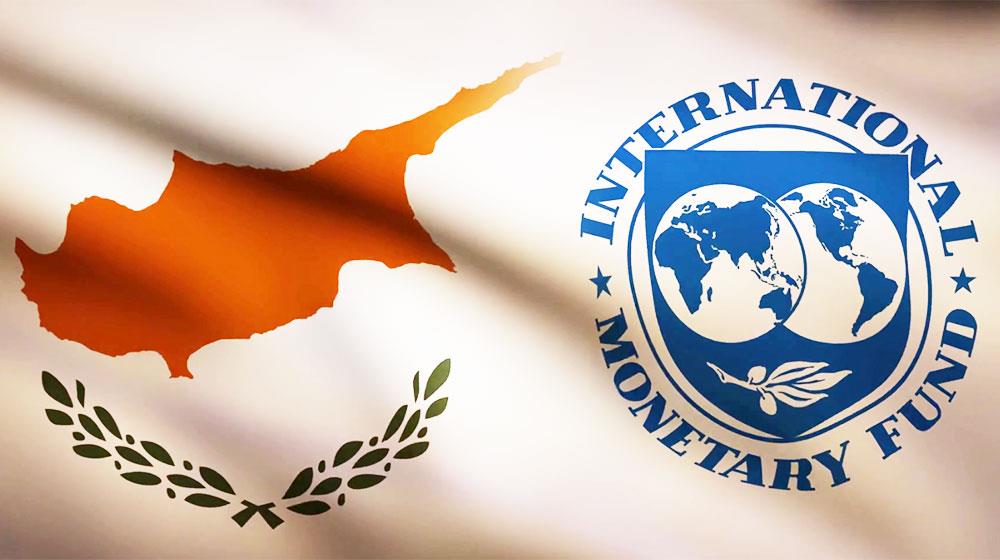The International Monetary Fund (IMF) has noted Cyprus' strong fiscal and economic performance in 2024, noting the achievement of a fiscal surplus of 4.3% of GDP and the reduction of public debt to 65% of GDP.
However, it has also called on the authorities to avoid measures that could exacerbate inflationary pressures or limit the scope for future spending.
The IMF's Annual Assessment of the Cypriot Economy under Article IV, which was approved by the Executive Board without a meeting and made public on the evening of 2 June, says Cyprus recorded one of the highest growth rates in the euro area in 2024 (3.4%), thanks to strong tourism, the development of the information and communications sector and resilient consumption. However, it warns of signs of overheating.
Growth slows, but reforms boost prospects
The IMF forecasts growth to slow to 2.5% in 2025, stabilising at 3% in the medium term as the Cypriot economy shifts from consumption to investment. Inflation, which fell to 2.1% in March, is expected to stabilise at 2% by the end of the year, supported by slowing growth and lower oil prices.
The Fund warns that any easing of fiscal policy or further wage pressures – particularly in the public sector – could rekindle inflationary risks. It also notes that near-term risks remain on the downside, due to global trade tensions and geopolitical instability, while the longer-term outlook is more balanced, especially if reforms continue.
The IMF acknowledges the “remarkable resilience” of the Cypriot economy, with strong services exports, robust domestic demand and a tight labor market with low unemployment. At the same time, however, it identifies signs of overheating, due to rising wages and trade restrictions. It also warns of the increased current account deficit and underlines that the external position remains weaker than fundamentals warrant.
Strong fiscal surplus, but little room for relaxation
According to the report, the fiscal surplus reached 4.3% of GDP in 2024, while the primary surplus reached 5.6%. Public debt was significantly reduced to 65% of GDP, strengthening the country's resilience to future shocks and strengthening market confidence.
The IMF calls on the authorities to continue to prioritise debt reduction in order to maintain a strong fiscal buffer. It stresses that new measures that would cause fiscal loosening, such as increases in social transfers or public wages, should be avoided. Special reference is made to the need to avoid increases in Automatic Indexation (AIA) and new one-off wage increases.
The IMF welcomes the government's commitment to maintain surpluses until 2028, within the framework of the EU's new fiscal governance framework. At the same time, it warns that future spending on climate, digital transformation and population aging limits the scope for fiscal policy easing.
Strong banking system, need for attention for real estate
The IMF notes that Cyprus' banking sector remains strong, with high levels of capital and liquidity and historically high profitability. Despite high interest rates, asset quality continues to improve, thanks to strong economic growth.
However, the Fund notes the need for continued vigilance, particularly with regard to the real estate sector. It welcomes the increase in the countercyclical capital buffer (CCyB) as a precautionary measure that strengthens banks' resilience without constraining lending or growth.
Although non-performing loans (NPLs) have been significantly reduced and removed from the banking sector, they still remain at high absolute levels. The full implementation of the foreclosure framework and the successful adoption of the “rent-for-installment” scheme are expected to accelerate the liquidation of NPLs, freeing up domestic capital.
Reforms to boost long-term growth
The IMF underlines that structural reforms are necessary to support Cyprus' future growth as the country transitions to an investment-focused growth model. It notes that with employment already at high levels, future growth should come from productivity gains and a strengthening of the investment environment.
It urges the authorities to accelerate judicial reforms, strengthen creditor rights and insolvency procedures, and speed up the delivery of justice. It also calls for policies to address skills shortages and boost employment for young people and the long-term unemployed.
In the energy sector, it stresses the need for rapid progress in completing the liquefied natural gas (LNG) terminal and electricity interconnection, in order to reduce costs, enhance security of supply and achieve the EU's climate goals. It also welcomes the launch of green taxation and increased competition in the electricity market.
Finally, the IMF considers it critical to maintain a strong anti-money laundering (AML) framework to protect the reputation and security of Cyprus’ financial system. It welcomes efforts to expand AML supervision and the planned establishment of a National Sanctions Implementation Unit within the Ministry of Finance.
You can view the original report here









